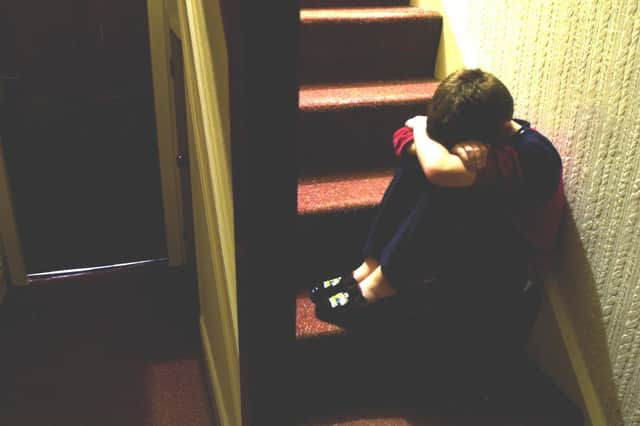Fifth of Northumberland children living in poverty, new figures reveal - with fears crisis will see problems worsen


The latest analysis of Government data by the End Child Poverty coalition and Loughborough University shows that 20% of the county’s youngsters were living in poverty in 2018-19, up from 19.5% the previous year.
The statistics, which show the rates before housing costs are taken into account, also reveal that this represents an increase of 5% over five years in Northumberland, from a rate of 15% in 2014-15.
Advertisement
Hide AdAdvertisement
Hide AdCoun Susan Dungworth, leader of the Northumberland Labour group, said: “It is shocking to see that child poverty in Northumberland has risen by 5% in the last few years.
“Sadly, it is not a surprise given the level of cuts to vital public services the Tories have impacted on our area in the last 10 years.
“All focus is rightly now on coronavirus, but this is a reminder that our society is deeply divided and as we defeat the virus, there needs to be a national effort to heal those divides. A good place to start is tackling child poverty as growing up in poverty can have lifelong negative effects.”
A Northumberland County Council spokeswoman said: “The welfare of children and young people in Northumberland is one of the council’s top priorities – and we would not wish any child to live in poverty.
Advertisement
Hide AdAdvertisement
Hide Ad“These figures reflect the challenges that people are facing where there is economic disadvantage, not only in parts of our county, but regionally and nationally.
“We run and support a number of targeted initiatives to help families and communities, in a bid to reduce poverty, improve life chances, and maximise incomes, for example through skills and job creation. These also include a focus on children through early help, education, safeguarding and addressing health and wellbeing inequalities.
“We fully recognise the additional impact of Covid-19 and are working extremely hard on a number of fronts to try to mitigate this, both now and for the future.”
While significant, Northumberland’s rate is below the regional average where almost a quarter of children (24%) were living in poverty in 2018-19. The county had the second lowest proportion of the 12 local authorities, behind North Tyneside.
Advertisement
Hide AdAdvertisement
Hide AdThe North East has also seen the starkest increase in the country with numbers rising by 6.5 percentage points in five years.
The worst hit area in the region is Middlesbrough, where 37% of children were living in poverty, followed by Newcastle (28%), Hartlepool (27%), South Tyneside (26%), and Gateshead (21%).
Jane Streather, chairman of the North East Child Poverty Commission, said: “It’s deeply concerning that the North East has seen the biggest increase in child poverty rates over the last few years and these figures demonstrate just how many families in our region were already struggling to make ends meet, even before the coronavirus crisis hit.
“Of course this terrible pandemic is not only exacerbating existing inequalities, but seeing many more families in our region being pulled into the grip of poverty as a result.
Advertisement
Hide AdAdvertisement
Hide Ad“It’s not right that tens of thousands of children and young people in the North East are facing such hardship and Ministers must act urgently to boost the incomes of families.
“The Government must also put a comprehensive strategy to end child poverty front and centre of the post-Covid recovery, with a social security system which provides a genuine safety net in difficult times. For children, that must include a significant rise in child benefit.”
A Government spokesman said: “This Government understands the challenges many are facing which is why we injected £6.5billion into the welfare system, including increasing Universal Credit and Working Tax Credit by up to £1,040 a year, as well as rolling out income protection schemes, mortgage holidays and additional support for renters.
“We currently spend a record £95billion a year on our safety net welfare system and remain committed to supporting the most vulnerable in society throughout the current emergency and beyond.”